Parents and caregivers have a unique understanding of what their children need to grow up with joyful futures, full of opportunities to thrive. When early childhood programs and policies are created with – and not just informed by – parents, they can ensure children have a better chance of success.
Real, sustained investment in engaging parents at every step is more than a catchphrase. It is intentional, ongoing and informed by parents’ own priorities.
While the All In For Kids network pursues parent engagement in different ways, our grantee partners share a focus on meaningful opportunities for parents to shape their priorities. They focus on community needs, redistributing resources and leadership to families and amplifying the services, policies, and practices that foster holistic well-being across generations. This approach ensures that everyone is part of a dynamic and evolving community where they can share and learn from each other’s experiences.
As an incubator, All In For Kids is vital in fostering a collaborative learning community and creating opportunities for the field to learn from each other. We start with intentional design, a process where we carefully plan and structure programs to ensure they effectively build parental power and voice.
Read on for examples of what our grantees have been learning and doing to engage parents in their work.
Engage in Advocacy
When local developers stalled on building affordable housing, La Luz rallied its parent networks, organizing a group of parents to make public statements, write letters, and demonstrate in large numbers.
“As La Luz, we can say, hey, we’re seeing this happen, and we think this would help. But it’s far more powerful when 20 or 30, as many people obviously as we can get, can show up for themselves and say, ‘I need that housing to happen or happen in this way,” said Sandy Sanchez, La Luz Program Director. “So that’s what we’ve been doing—getting our parents to participate by showing up to meetings, submitting a public statement, and/or voting. It’s really powerful to watch.”
Their collective actions showed strength and demonstrated parents’ potential to effect real change and advocate for better affordable housing policies, resulting in positive ripple effects across various advocacy needs.
Mission Economic Development Agency (MEDA) also knows how to mobilize real needs in real-time. They asked parents to reflect on what they want in life and what holds them back. As part of the Mission Photovoice Project, participants expressed the importance of sharing what is happening in their communities with local leaders.
“The Photovoice Project has underscored a crucial insight: when we empower the community to share their experiences, we unlock solutions that benefit the entire community,” shared Ana Avilez, Program Associate for the Promise City. “If our policymakers and leaders grasp the fact that families’ needs evolve over time, we can design adaptable systems that truly support them.”
Invest in Parent Talent
All In For Kids grantee partners, like First 5 Monterey County’s Central Coast Early Childhood Advocacy Network and The Primary School, build their programs around children’s and parents’ goals and hopes, focusing on fostering intergenerational healing.
“We believe that advocacy is healing. When we provide opportunities to amplify parents’ experiences and solutions, we can collectively heal as a community. We can break cycles of intergenerational trauma, and out of that healing can come the dignity, purpose and joy parents deserve,” said Nina Alcaraz, Director of Policy, Advocacy and Communications at Central Coast Early Childhood Advocacy Network.
“We work from an assets-based mentality. When every touchpoint throughout your child’s care and early education program is organized around your well-being, it matters. It’s about giving space for parents to showcase their power and agency,” said Natasha Hall-Sevilla, of The Primary School. “And you see how much talent exists in the parent world.”
When parents face the added challenges of poverty and racism while raising their children, they may struggle with overwhelming feelings of shame and grief. It’s important for them to know that they don’t have to carry this burden alone.
When parents receive support and acceptance, they can recognize their strengths. This creates a nurturing environment that brings joy to the parenting journey, fostering confidence and a sense of community that empowers families to advocate for their needs. This can lead to positive changes in the entire community.
“We’ve seen a real shift in power dynamics within communities,” said Rocio Monter, who manages the Parents LEAD program at La Luz. “When we hear things like, ‘Hey, I feel comfortable writing this letter. Or, I went with another parent to this meeting, and we voiced our opinions,’ You see that confidence being built—and that impacts them and their children too. That’s real parent power.”

